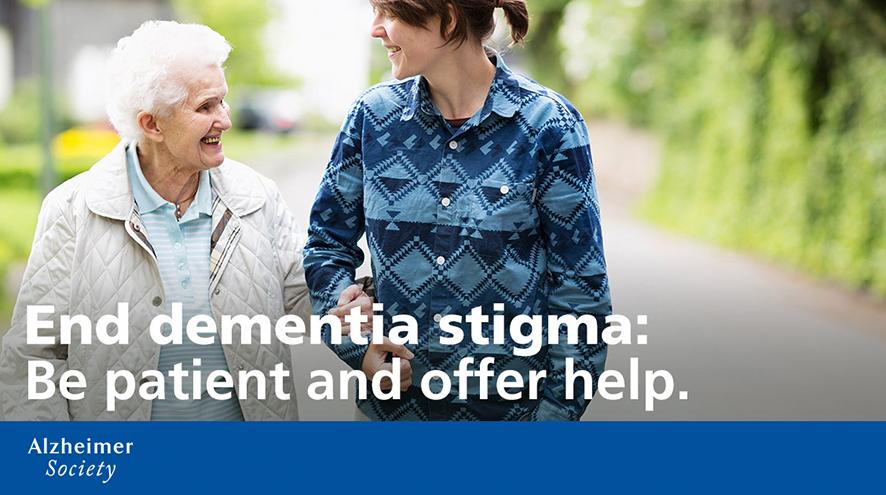Ways to help
Friends, neighbours and extended family are important sources of support for the family. Perhaps you want to help but don't know where to begin. This page will give you some ideas of how you can offer practical help and show that you care.

The information on this page is also available to read in a print-friendly PDF. Download Ways to help or contact your Society for a copy.
Visiting the person with dementia
- Arrange a convenient time for your visit
Choose a time that is best for the person. Shorten your visit if he shows signs of fatigue. - Communication is the key
Use gestures as well as words. Pace the conversation allowing time for him to respond. - Introduce yourself
If he seems confused, identify yourself and why you are there. "It's Jane, I came to visit you today." - Remember and laugh together
Recall humorous experiences you both shared. "I remember when we both..." Take pleasure in each moment. - Be prepared to listen
People with the disease may want to share their feelings. Remain open and sympathetic. - Establish connection through a common interest
Continue your favourite activity together. Listen to music. Take a walk. Concentrate on the person's talents and abilities. - Show that you care
We all communicate through emotion, expression and touch. Holding a hand, or smiling when talking can convey more than words.
Caring for the caregiver
- Take time to listen
Let her know you are available to listen when she feels overwhelmed and needs to talk with someone. - Do little things -- they mean a lot
If you're on your way out to do an errand, call and see if she needs anything. - Give the caregiver a break
Offer to visit with the person with the disease. Encourage the caregiver to spend time on a favourite hobby, run some errands or spend time alone. - Provide a change of scenery
Suggest an outing to the park or a visit to your home. Whenever possible, include the person with dementia in the outing. Choose an activity that everyone will enjoy. - Keep in touch
Maintain contact -- a phone call, card, e-mail or a visit means a great deal. The disease has an impact on all family members - spouses, adult children and even young children. Be attentive to their needs, too. - Become informed
Learn about Alzheimer's disease and how it affects the person and the family. Contact your local Alzheimer Society for more information. - Stay the course
It is a long journey for caregivers. Any support you can provide along the way will likely be appreciated.
Important things to know
People with dementia
- Need to feel valued
- May be concerned about how the disease will affect themselves and their families
- Need companionship
- Strive to maintain an active and independent life
- Have the same needs as each and every one of us
- Have abilities, skills and aspirations
Caregivers
- Often feel alone and isolated from friends
- May need assistance, but are often reluctant to ask
- Are often unable to do errands or complete household tasks
- Experience stress that sometimes affects their health
- Need regular breaks from caregiving
- Need someone to listen
Helping the Alzheimer Society
There are many things you can do to help the Alzheimer Society. Consider making a donation to support our work. Volunteer at your local Society or support a local fundraising event.
